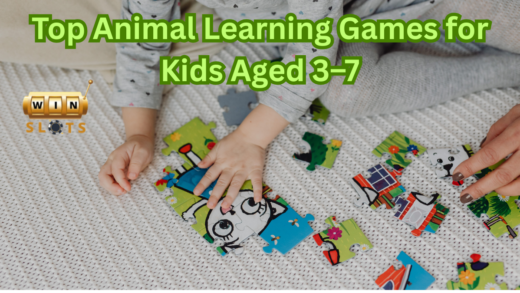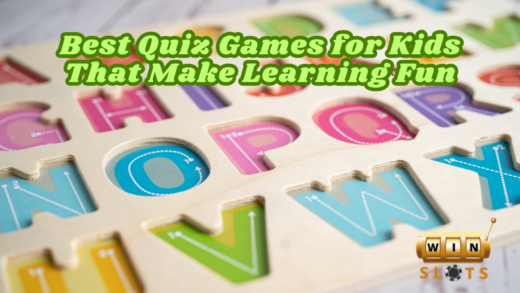Learning the alphabet is a fundamental step in a child’s educational journey. Between the ages of 2 and 5, children begin to recognize letters, connect sounds, and eventually form words. Making this learning phase engaging and enjoyable is essential, and that’s where top alphabet games for preschoolers come in.
By blending play with education, alphabet games turn what could be a dull memorization task into an exciting adventure.
Whether you’re a parent, caregiver, or educator, using ABC learning games can help children strengthen early literacy skills while having a blast.
Why Alphabet Games Matter in Early Literacy
Preschoolers learn best through play. At this stage, they are developing fine motor skills, cognitive abilities, and language comprehension. Games that involve letter recognition and sound association encourage:
- Visual recognition of letters
- Phonemic awareness, or the ability to hear and identify sounds
- Vocabulary building through active engagement
- Confidence as kids “crack the code” of language
Using alphabet games as part of a routine makes early literacy feel natural and enjoyable.
Top Digital ABC Learning Games
1. Endless Alphabet (Originator Inc.)
This app combines adorable monsters, interactive puzzles, and word-building to introduce letters and their sounds. Each word comes to life with fun animations and sound effects.
Why kids love it:
- No time limits or scoring pressure
- Positive reinforcement
- Encourages vocabulary expansion
2. Starfall ABCs
A well-loved platform in early education, Starfall ABCs offers engaging activities to help preschoolers associate letters with sounds, words, and visuals.
Best features:
- Friendly voice narration
- Fun songs for each letter
- Completely ad-free
3. ABCmouse.com Early Learning Academy
Though it’s a subscription-based app, ABCmouse offers an entire early learning curriculum. The alphabet section is rich with interactive activities, tracing, and songs.
Highlights:
- Personal progress tracking
- Printable activities
- Covers all areas of early literacy
Hands-On Alphabet Games That Inspire Learning
1. Alphabet Scavenger Hunt
Hide letters or objects around the house that start with different letters. Have your child find items that begin with A, B, C, and so on.
Educational impact:
- Encourages physical movement
- Reinforces letter-sound connections
2. Letter Matching Puzzles
Use flashcards or wooden puzzles to match uppercase and lowercase letters. Many puzzles add a twist by pairing letters with pictures of animals or objects.
Developmental benefits:
- Builds fine motor skills
- Strengthens memory and recognition
3. Alphabet Sensory Bins
Fill a bin with rice, beans, or sand and hide foam or plastic letters inside. Kids search through the material to find and name each letter.
Why it works:
- Sensory engagement boosts focus
- Promotes tactile learning
DIY Alphabet Games for Creative Learning
1. Alphabet Hopscotch
Draw letters on the ground with chalk or tape them indoors and have children hop to the letters you call out. Add challenges like “Find the letter that starts with ‘tiger.’”
2. Craft-a-Letter Projects
Each day, focus on one letter. Make crafts with materials shaped like the letter or objects that start with it (e.g., “B” for buttons or “C” for cotton balls).
3. Sing-Along Letter Songs
Songs are powerful memory aids. Try classics like the ABC Song or make up your own rhymes based on each letter.
Tips for Parents and Teachers
- Incorporate daily repetition: Practice letters during regular routines like mealtime or bedtime.
- Use multi-sensory tools: Combine visuals, sounds, and touch to reinforce learning.
- Celebrate progress: Praise effort, not perfection. Stickers, charts, and mini-rewards go a long way.
- Stay patient and flexible: Every child learns at their own pace. Keep the experience joyful and pressure-free.
Recommendation
Best Phonics Games for Kids Aged 4–6 to Build Reading Skills
Free Educational Games for Kids Aged 3–6 (No Downloads Needed)
Best Word Games for Kids Aged 5–9 That Build Vocabulary
Best Puzzle Games for 5-Year-Olds That Make Learning Fun
Best Educational Games for Toddlers 2025: USA and UK Parents’ Favorites
FAQ: Alphabet Games for Preschoolers
Q1: What age should a child start learning the alphabet?
A1: Most children begin recognizing letters around age 2–3, but full mastery typically comes by age 5. Games are a great way to introduce the alphabet early.
Q2: Are digital ABC games effective for preschoolers?
A2: Yes, When used in moderation, digital games provide engaging, interactive experiences that reinforce phonics and letter recognition.
Q3: How often should my child play alphabet games?
A3: A few short sessions daily—about 10–15 minutes—can significantly improve letter familiarity and phonemic awareness over time.
Q4: Are there any no-cost alphabet games?
A4: Absolutely. DIY games like alphabet scavenger hunts, homemade flashcards, and sing-alongs are free and very effective.
Q5: Can these games support children with learning delays?
A5: Yes, alphabet games can be tailored for different learning needs and often help children with language delays engage more comfortably.
Final Thoughts
Building a strong literacy foundation begins with something as simple as knowing the ABCs. By using top alphabet games for preschoolers, you’re setting the stage for language development, reading skills, and future academic success.
Whether you opt for high-tech apps or hands-on crafts, the key is to make learning feel like play. With these creative, fun, and effective ABC learning games, you’ll watch your child grow in confidence and curiosity—one letter at a time.



